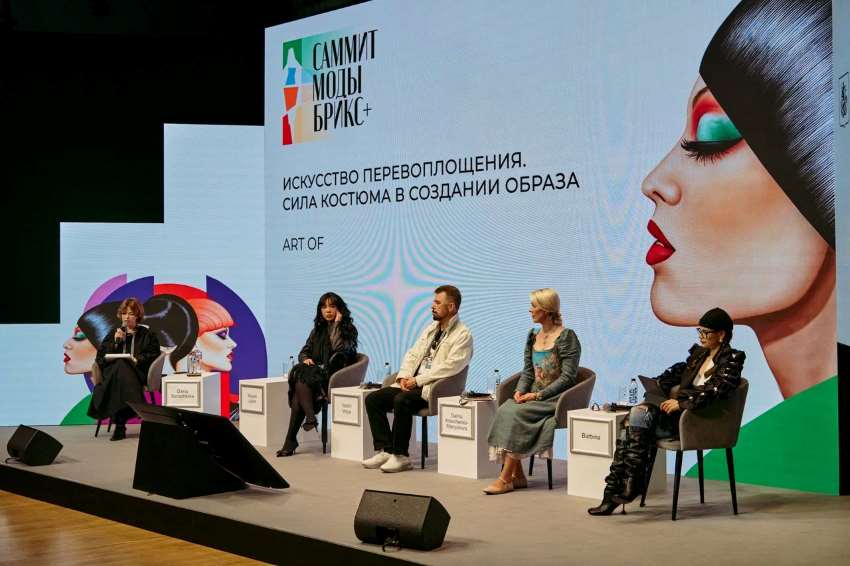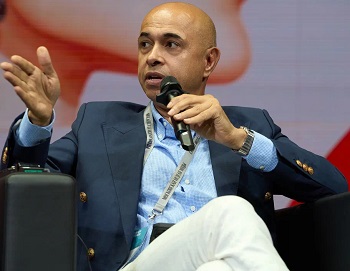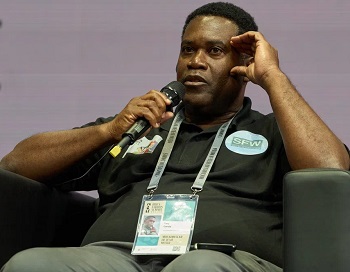In a world where fast fashion often dominates, a different conversation took center stage in Moscow. The recently concluded BRICS+ Fashion Summit, held in conjunction with Moscow Fashion Week, wasn't just about the latest trends; it was a powerful statement on the enduring link between culture and costume, and a collective call for ethical and equitable practices in the global fashion industry.
From August 28 to September 2, 2025, industry leaders, designers, and artisans from over 60 countries, including Brazil, China, India, and South Africa, converged to discuss everything from the "art of transformation" through costume to the delicate ethics of cultural borrowing. The event served as a vibrant and vital platform for the Global South to assert its creative and economic power.
Beyond the Runway: The power of costume and cultural code

The summit's business program delved deep into the philosophical and practical aspects of fashion. One panel, "The Art of Transformation," explored how costume transcends simple clothing to become a vehicle for storytelling and identity. As Vadim Volya, Art Director of the New Russian Circus, aptly put it, “Costumes have a special task, unlike regular clothing. They must convey meaning. In theater or cinema, a costume carries far more information than simply representing the character—it must fit the artistic context of the work.” This sentiment was echoed in discussions on how designers are using traditional symbols, from Russian national motifs to African patterns, to create modern, meaningful collections.
The "Land Code" discussion was a highlight, with experts agreeing that traditional crafts are not just an inspiration but a powerful competitive advantage. Hind Joudar, Founder and CEO of Morocco Fashion Week, highlighted the fine line between appreciation and exploitation, sharing the frustration of seeing traditional Moroccan slippers, "babouches," sold by famous couturiers for exorbitant prices with no benefit to the original artisans. “Economic opportunity is vital, but it must respect ancestral traditions and operate fairly,” Joudar stressed.
This challenge was a central theme, with speakers calling for stronger intellectual property frameworks to protect folk crafts. Vyacheslav Dolgov, Chairman of the Board of the National Union of Folk Art Crafts, described Russia’s approach, where crafts like Gzhel ceramics are protected by a "land code" that ties them to their place of origin. “This approach is correct because the birthplace of tradition is sacred,” he said.
The Golden Rule: Navigating cultural appropriation
The most poignant and timely discussions revolved around the charged topic of cultural appropriation. Panelists universally agreed that a "golden rule" must be established in the industry: disclosing sources of inspiration.

Ajai Vir Singh, Managing Director of Colombo Fashion Week, was direct in his assessment. “For years, European brands have used local crafts without revealing where they borrowed these motifs. Cultural appropriation in any form creates inequality.”
Montenegrin designer Marina Banović provided a practical example of ethical collaboration. She detailed her work with the local Albanian community to create a commercial line inspired by the traditional "jubleta" costume. The collaboration ensures the community benefits directly from the sales. “When you don't disclose a design's origins, you cross into appropriation territory,” Banović said. “We strive to protect the source—respecting origins is essential because without that respect, commerce steals its soul.”

Tery Carola, CEO and Founder of Seychelles Fashion Week, added another layer to the conversation, highlighting the importance of understanding cultural context beyond just citing a source. She used the example of Seychelles nuts, a natural resource that has been used for medicines and cosmetics without proper acknowledgment. Thanks to recent legislation, this natural wealth now benefits the Seychellois people, creating a clear parallel for how fashion can become a tool for economic and cultural empowerment.
A new world order for fashion
The summit’s overarching message was clear: fashion is a powerful tool for cultural diplomacy and economic development, particularly for emerging economies. The convergence of so many diverse voices in Moscow signaled a collective desire to decentralize the traditional fashion power structure and create a more inclusive, ethical, and collaborative global industry. By putting culture, heritage, and people at the forefront of the conversation, the BRICS+ Fashion Summit and Moscow Fashion Week laid the groundwork for a more thoughtful and respectful future for fashion.












